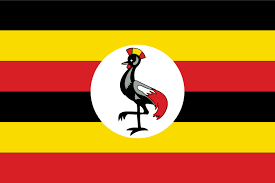
|
Downloads: 1 | Size: 23 MB
WATERFRONT 1Inside the Uganda Water and Environment Week 2025: Shaping the Future of Water and Environment Sustainability The Uganda Water and Environment Week (UWEWK) 2025 is a distinguished forum designed for dialogue, knowledge sharing, and collaboration among various stakeholders in the water and environmental sectors. Organized by the Ministry of Water and Environment (MWE) through the Water Resources Institute (WRI), this event brings together policymakers, researchers, development partners, and practitioners to identify solutions that bolster resilience, enhance livelihoods, and promote sustainable economic development. Under the theme; “Water and Environment Resources for Enhanced Resilience and Improved Incomes and Livelihoods,” |
|

|
Downloads: 5 | Size: 2 MB
WATERFRONT 2Hon. Beatrice Anywar Calls for Practical Recommendations to Address Water and Environment Challenges: UWEWK 2025: A Hub for Advocacy, Policy, and Knowledge Sharing: UWEWK has become a flagship platform for advocacy, policy influence, and knowledge sharing, bringing together government leaders, cultural institutions, academia, and development partners. This year’s theme, “Water and Environment Resources for Enhanced Resilience and Improved Incomes and Livelihoods,” aims to generate practical solutions for Uganda’s environmental challenges. |
|

|
Downloads: 4 | Size: 2 MB
WATERFRONT 3KEYNOTE: Water and Environment for A Peaceful and Sustainable Future. A crucial foundation for a peaceful and sustainable future lies in water and environmental management, yet significant challenges persist. On the second day of the Uganda Water and Environment Week (UWEWK) 2025, a keynote presentation shed light on several pressing issues, including water scarcity driven by heightened competition among various user groups such as farmers, pastoralists, urban water supply, and industries. Other concerns included land degradation due to overgrazing, deforestation, and unsustainable farming practices; unequal access to resources; weak governance and institutional frameworks; limited human resources; poorly enforced water permits; climate change; social and political factors; poverty and inequality; and rapid population growth. |
|

|
Downloads: 3 | Size: 801 KB
WATERFRONT 4Beyond the Surface: In a thought-provoking keynote address, Dr. Daniel Ddiba, a Research Fellow at SEI-Stockholm, shed light on the critical intersection between water, sanitation, and climate change during a recent presentation. The keynote, titled “Water and Environment for Climate Action,” outlined the deep linkages between these sectors and highlighted the urgent need for integrated approaches to tackle the growing climate crisis. Dr. Ddiba began by discussing the profound effects of climate change |
|

|
Downloads: 3 | Size: 794 KB
WATERFRONT 5Unlocking Economic Growth through Water and Environmental Sustainability: Speaking at the 8th Uganda Water and Environment Week (UWEWK) 2025 under the Ministry of Water and Environment, Prof. Edward Bbaale, Director of the EfD Makerere Centre at Makerere University, noted the critical relationship between water, environmental resources, and economic prosperity. He emphasized that water and environmental resources are not just vital for human survival but are also engines for economic growth. However, he pointed out the paradox of widespread inequality in access to these resources, despite their abundance, and highlighted the urgency of addressing this issue for the future well-being of humanity. |
 Official Website of the Ministry of Water and Environment
Official Website of the Ministry of Water and Environment
